Modernist 100.
The Modernist 100 list is a work in progress. It is an on-going documentation of the significant modernist buildings in Singapore. Do you see any significant building or landscape missing from this list? Please let us know here.
There is a large number and great diversity of buildings in Singapore that can be considered as modern. By modern, we are referring to not just architectural aesthetics but also constructional and environmental techniques, socio-economic processes, cultures, and political rationalities. The quantity and diversity are rooted in Singapore’s short but vibrant history variously as a colonial port city, a post-independent developmental state, and a contemporary global city. In this short introduction of the inventory list, we provide a brief sketch of how the shortlisted modernist buildings help to bring this rich socio-cultural history to life. Read the full statement >
This list is the result of 2019 mASEANa conference with the support of: Singapore Heritage Society
mASEANa Project NUS Department of Architecture
View by:
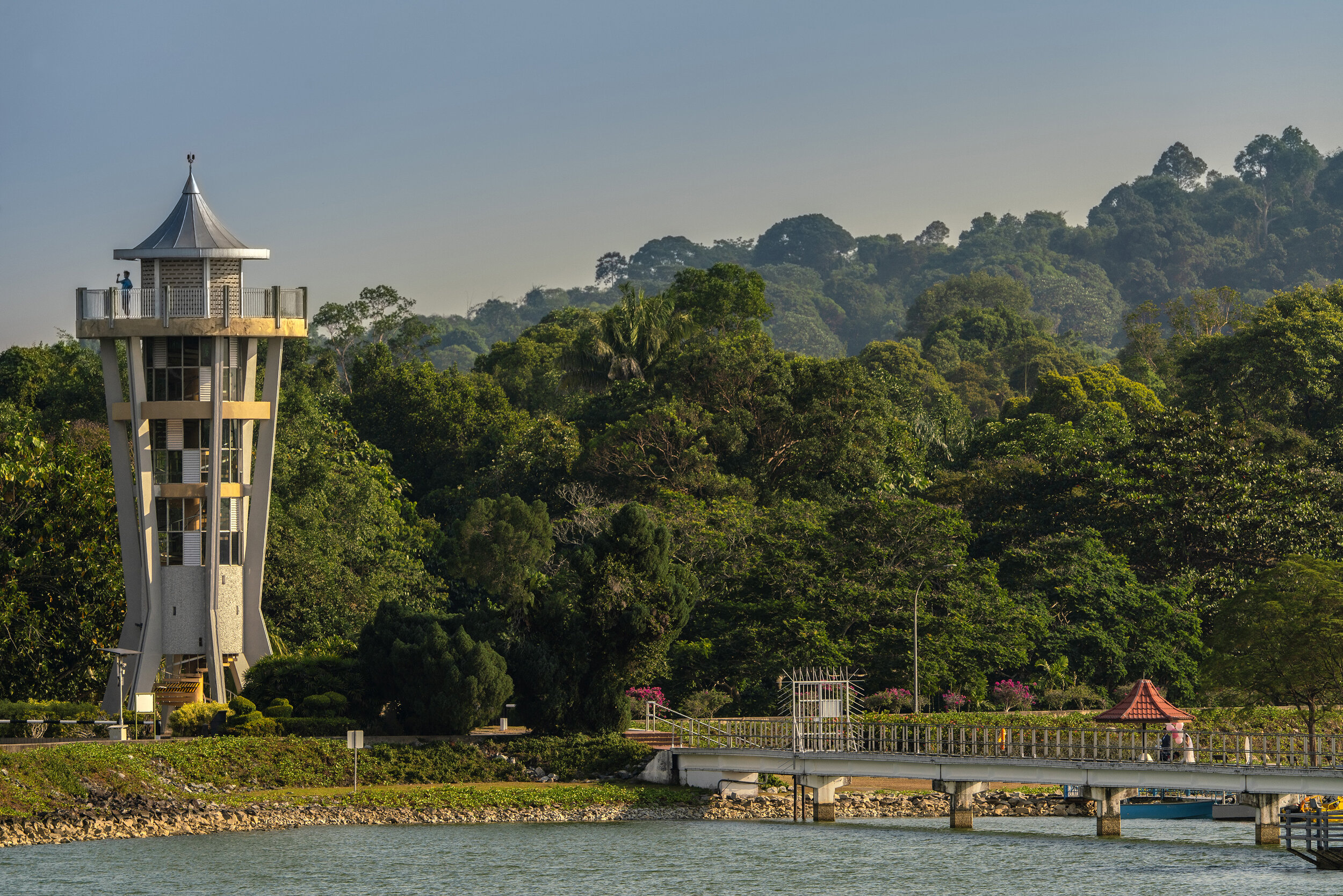
Seletar Reservoir Lookout Tower
Year: 1969
Architects: Public Works Department
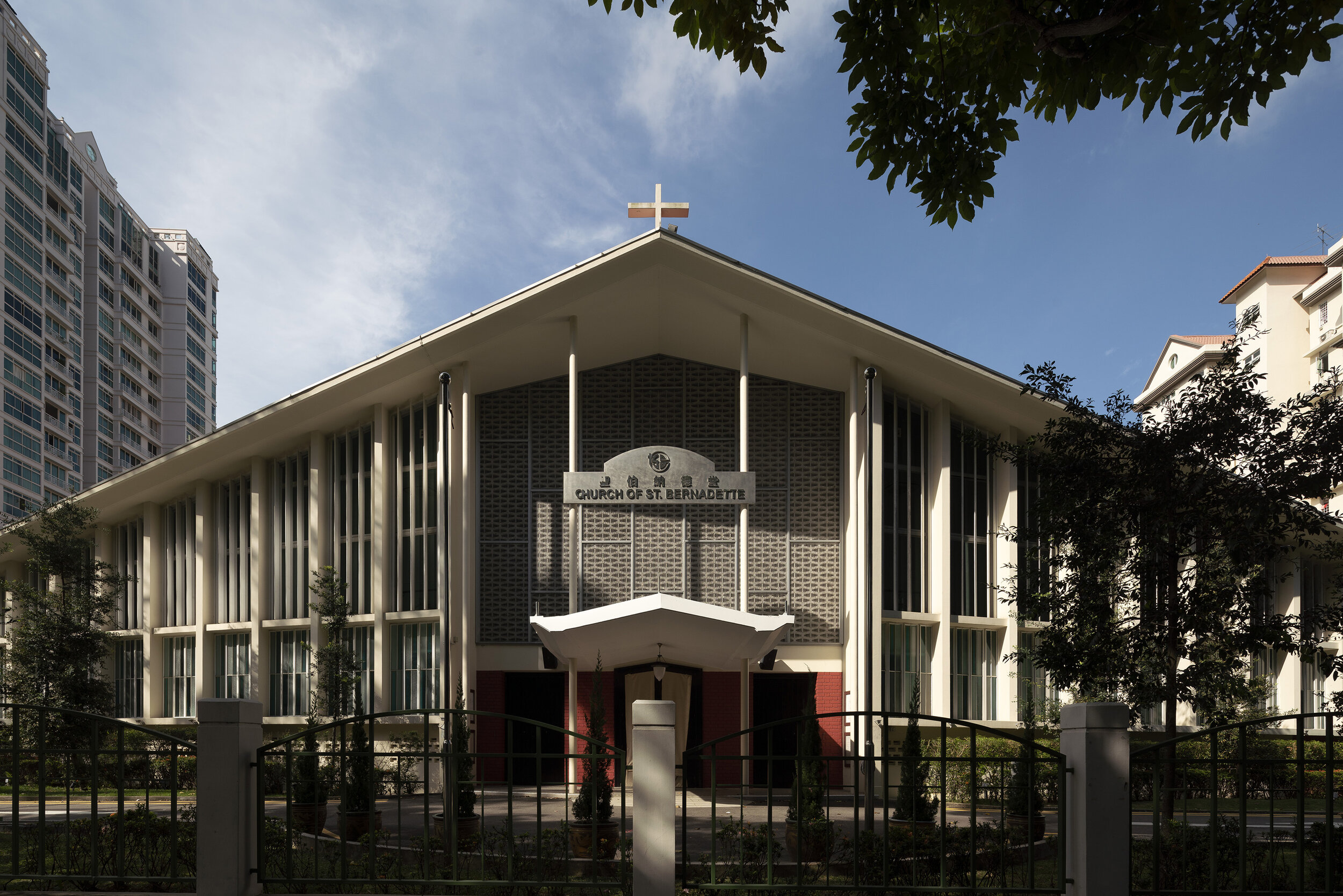
Church of St. Bernadette
Year: 1961
Architect: Alfred Wong
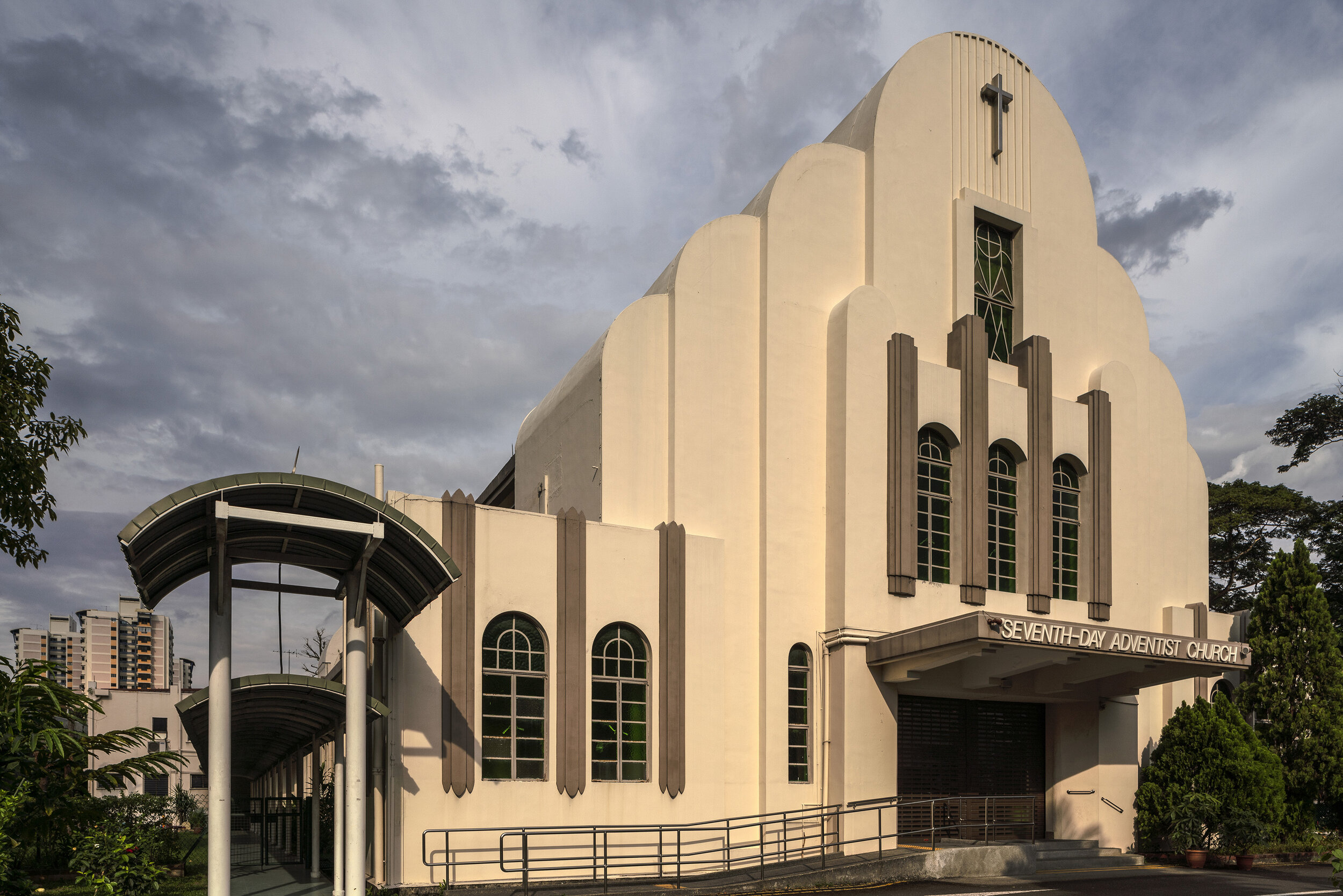
Seventh-Day Adventist Church
Year: 1938
Architect: C. Y. Kong
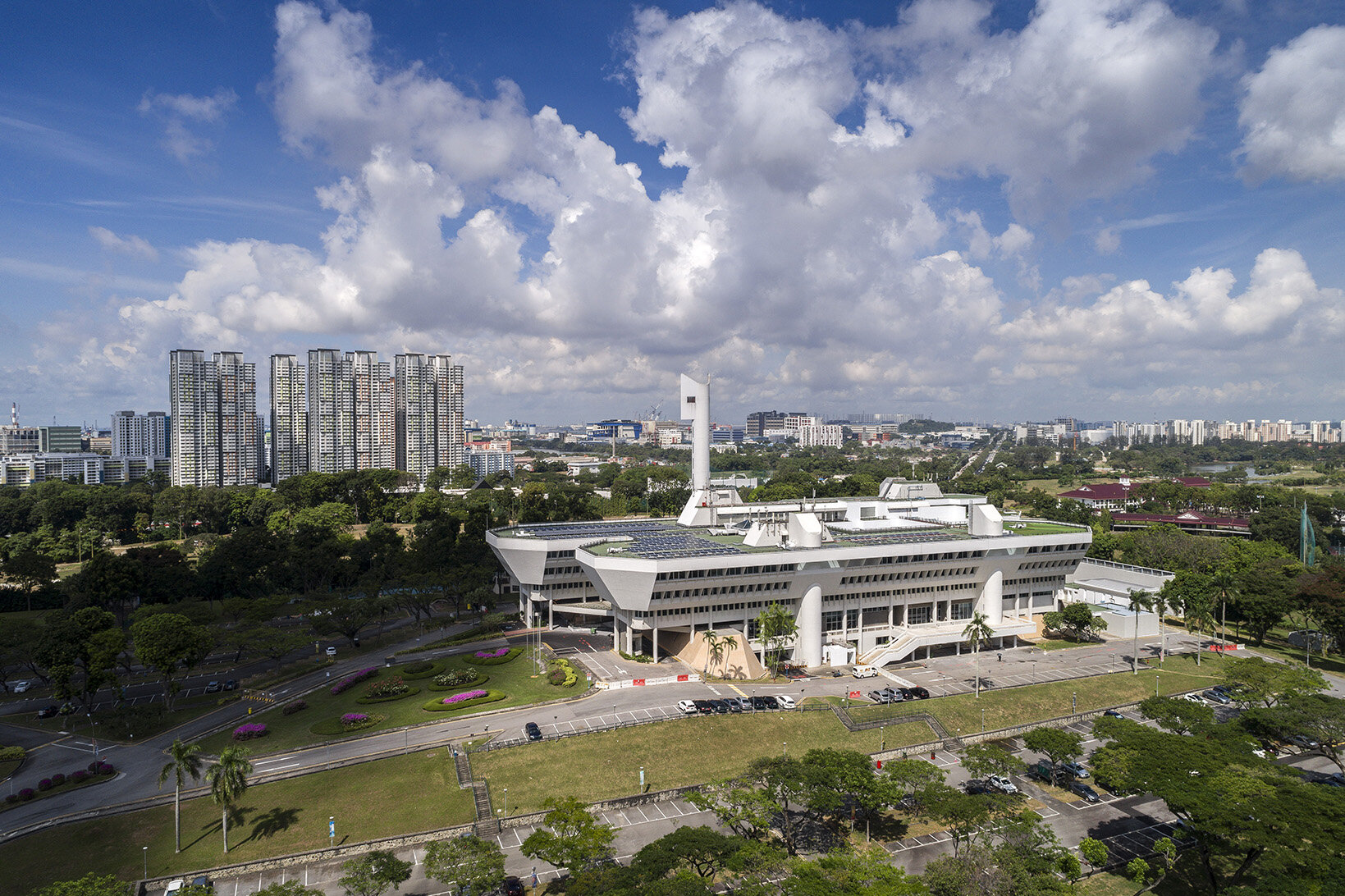
Jurong Town Hall
Year: 1973
Architect: Architects Team 3
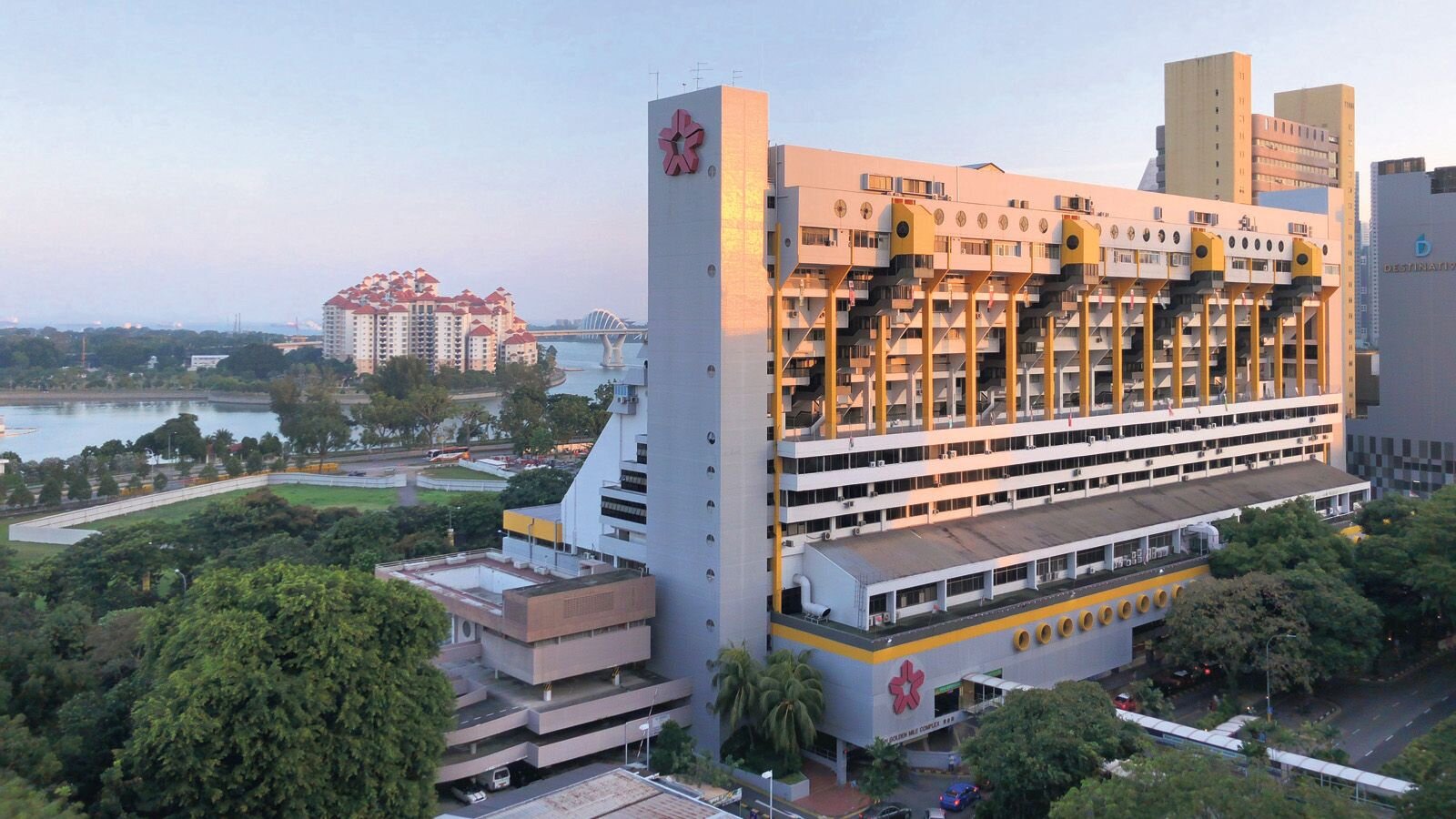
Golden Mile Complex
Year: 1973
Architect: Tay Kheng Soon, William S.W. Lim, Gan Eng Oon from DP Architects

Singapore Conference Hall and Trade Union House
Year: 1965
Architect: Lim Chong Keat, William S.W. Lim, and Chen Voon Fee of Malayan Architects Co-Partnership

Church of the Blessed Sacrament
Year: 1965
Architect: Gordon Dowsett of Iversen, van Sitteren and Partners
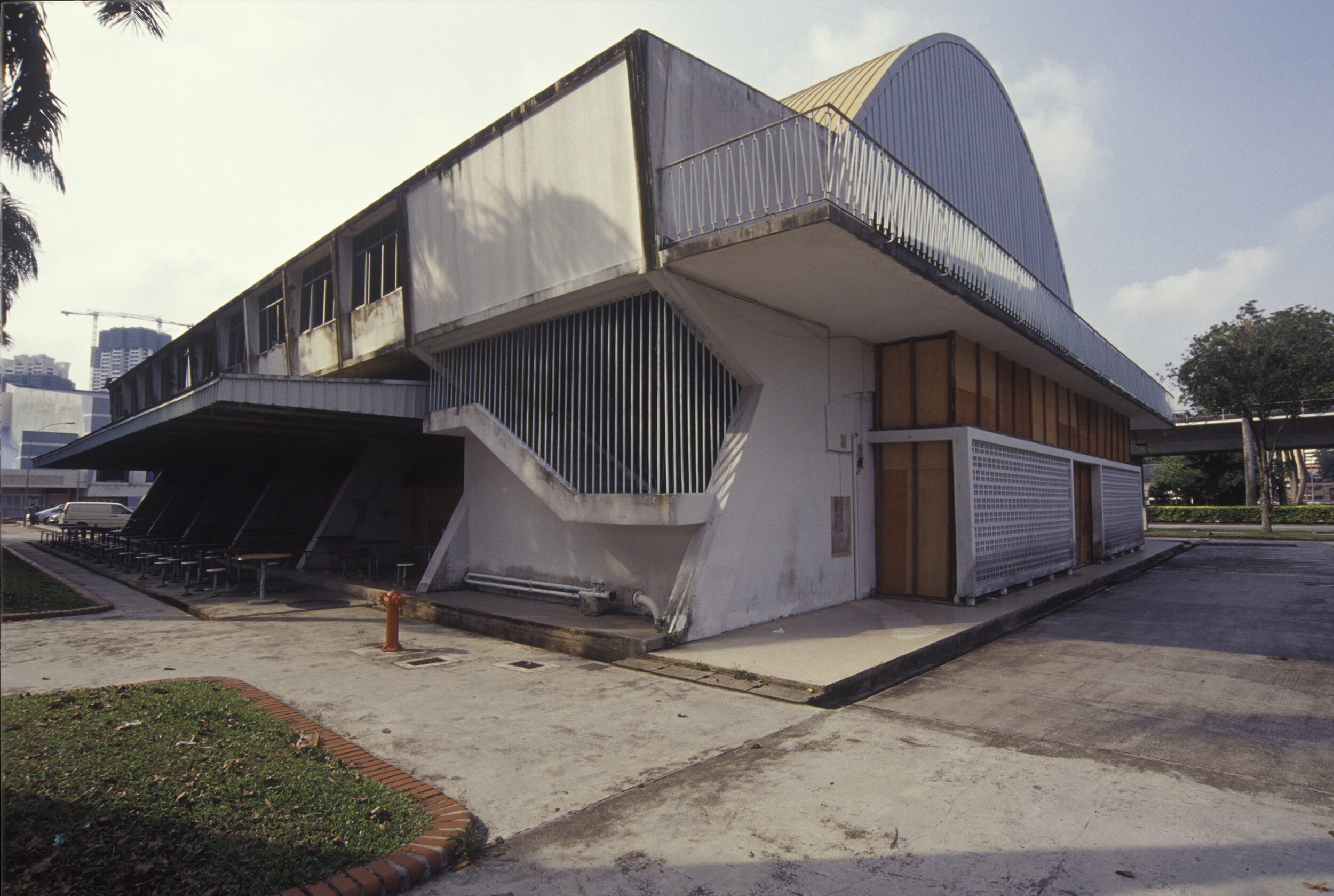
Queenstown Market
Year: 1960
Architect: Singapore Improvement Trust
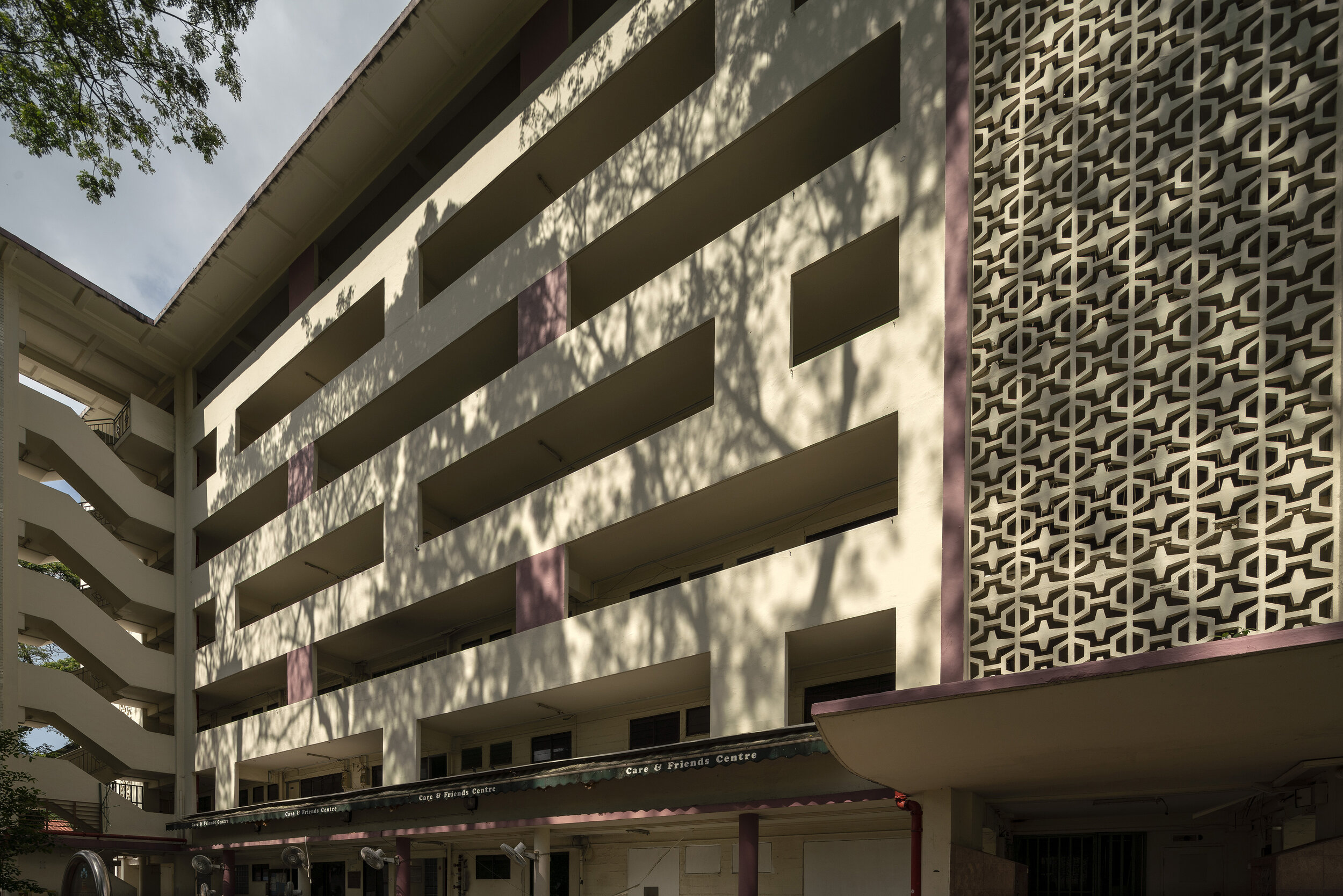
Old Airport Road Estate (Dakota Crescent)
Year: 1958
Architect: Singapore Improvement Trust
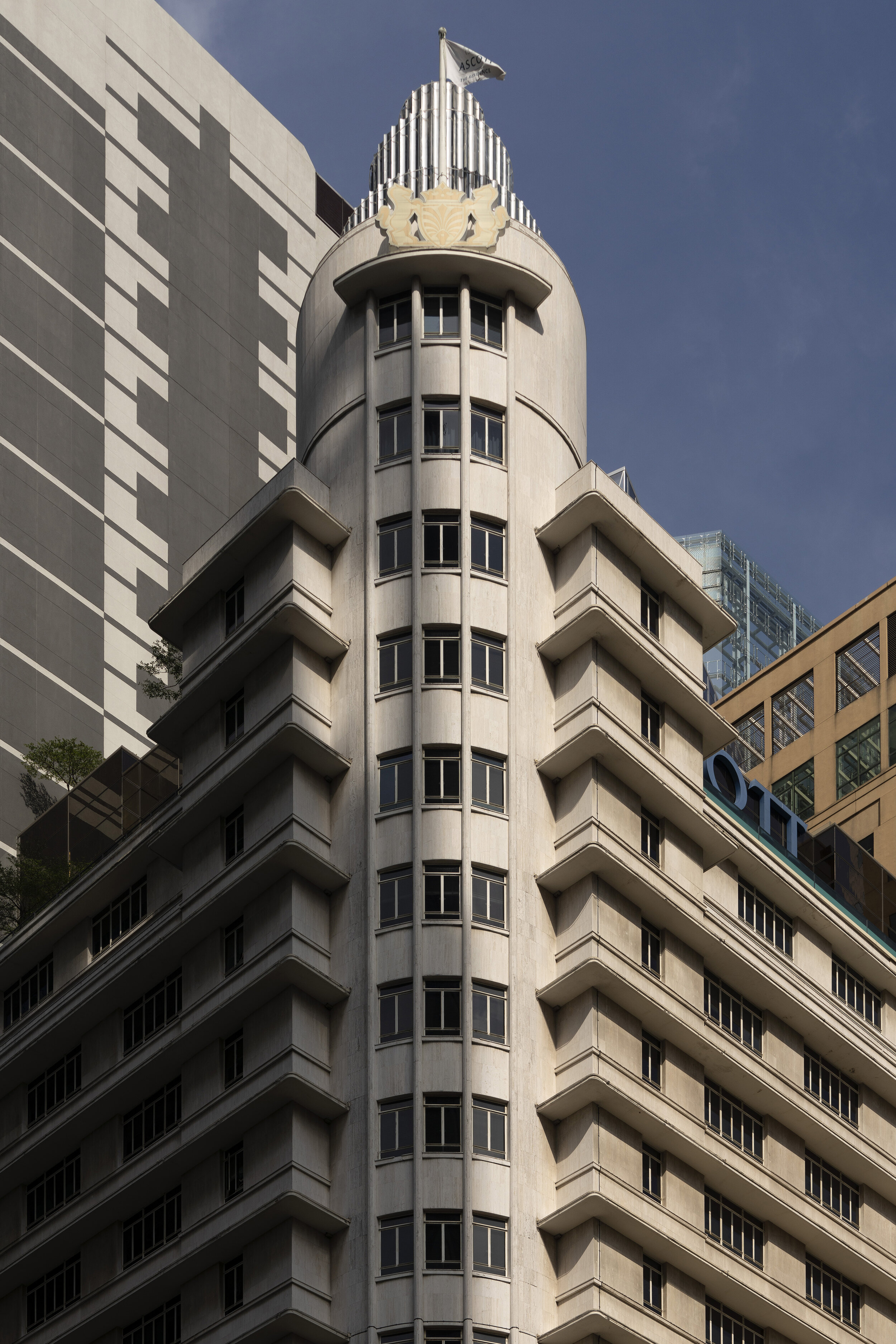
Asia Insurance Building
Year: 1955
Architect: Ng Keng Siang
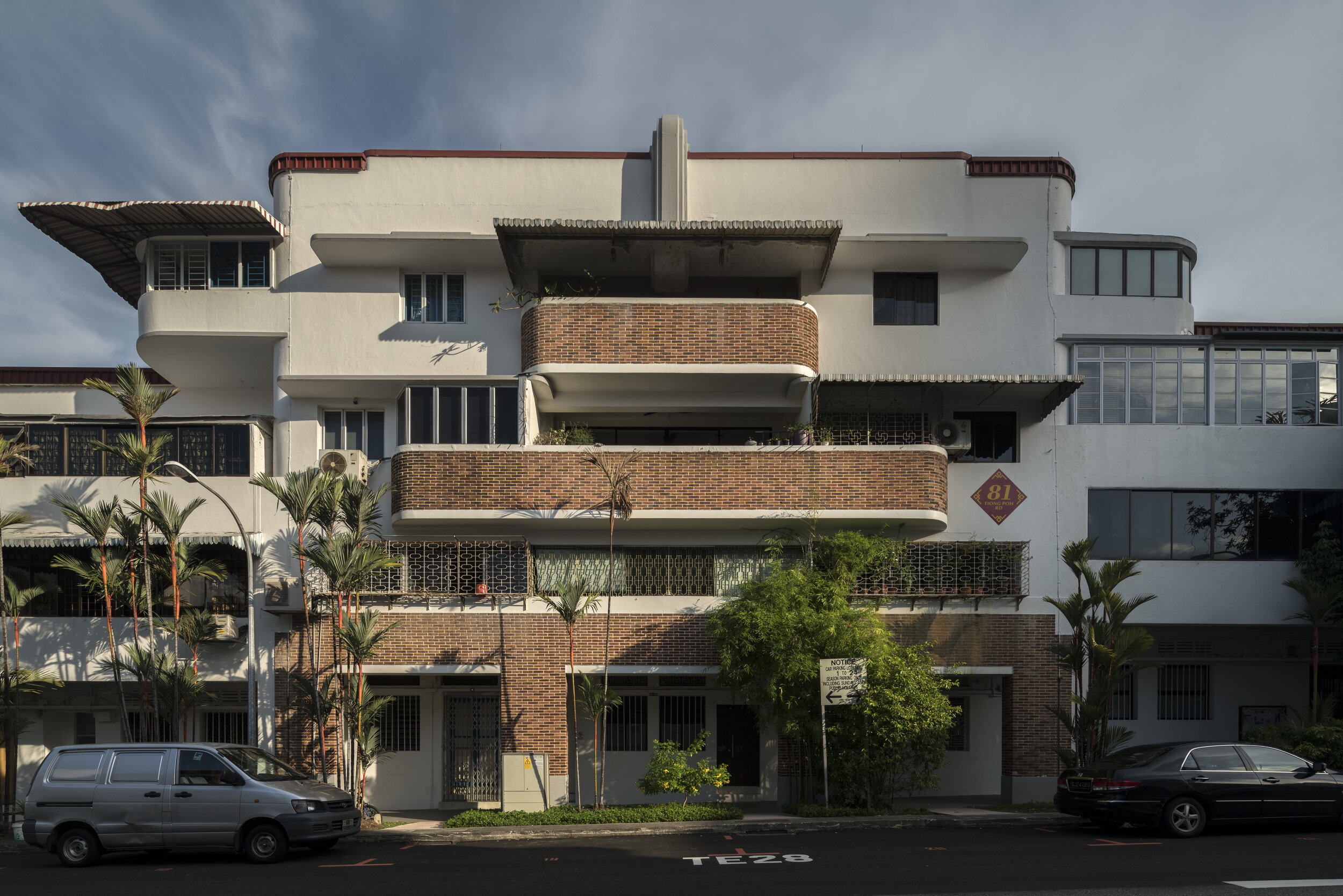
Pre-War Tiong Bahru Flats
Year: 1937–1941
Architect: Langdon Williams of Singapore Improvement Trust
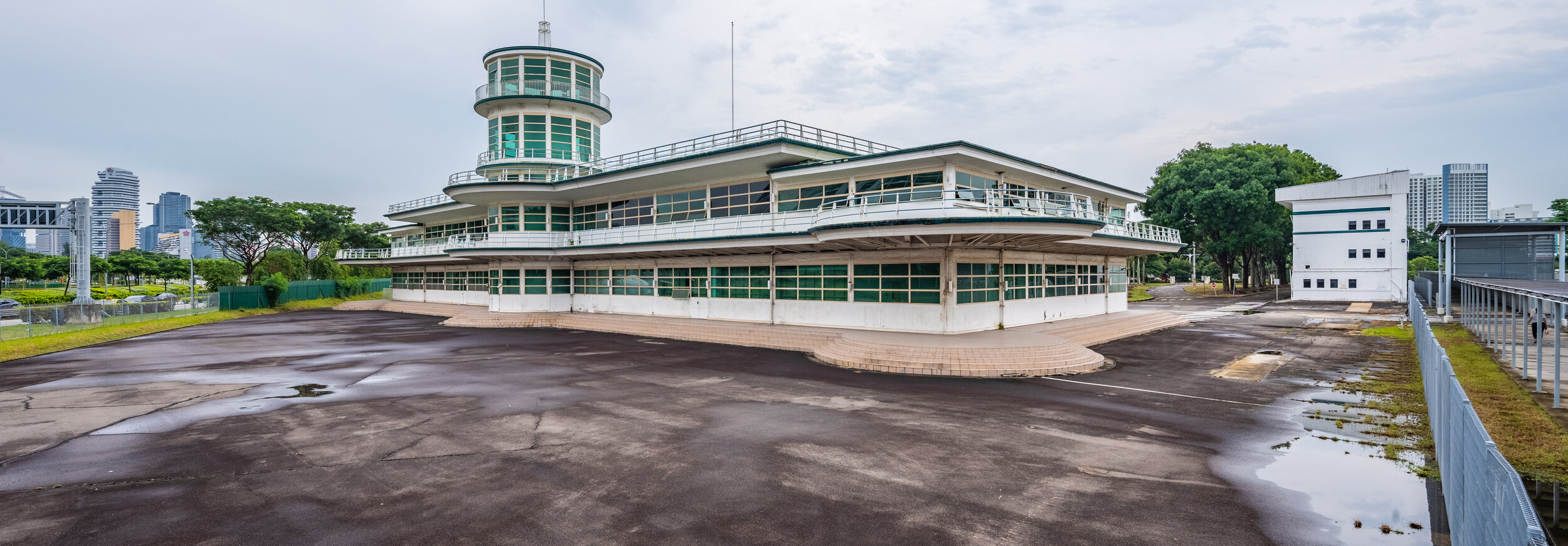
Singapore Civil Aerodrome
Year: 1937
Architect: Frank Dorrington Ward of Public Works Department
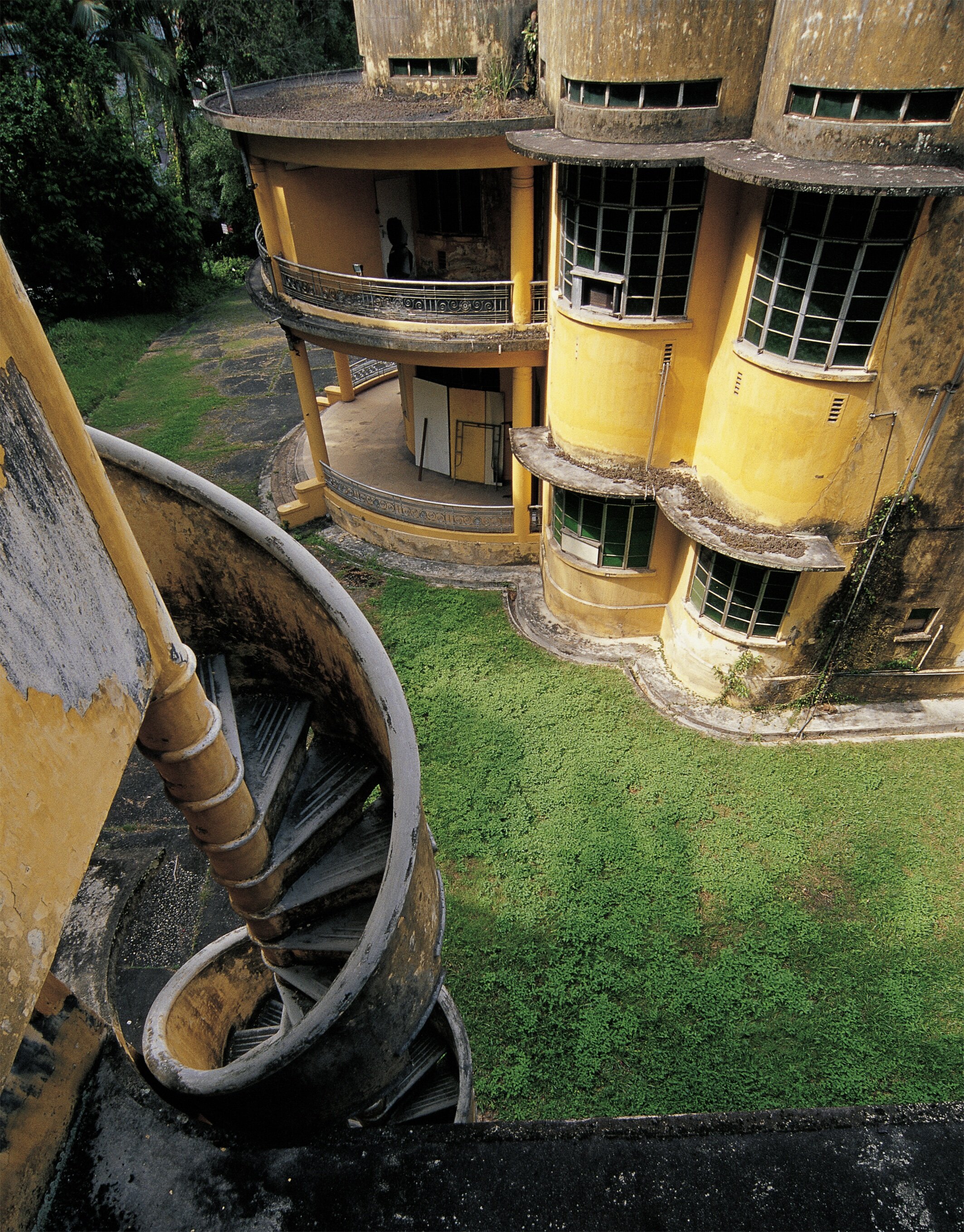
Wellington House
Year: 1938
Architect: Ho Kwong Yew
* The difference between a building being “threatened” and “not conserved” is not always a clear cut one. For this website, we classify a building as being “threatened” under a few circumstances—1. when it has been put up for sale by its owner(s) and there is a likelihood that it might be demolished in the name of redevelopment, 2. when it has been left empty and without tenants for a while and might be awaiting redevelopment, and/or 3. when a notice for demolition and redevelopment has been put up.


